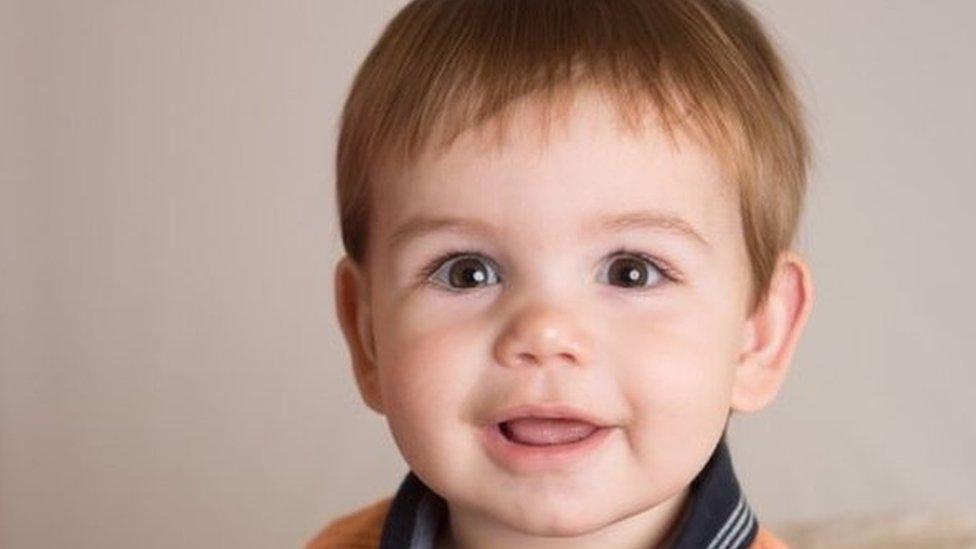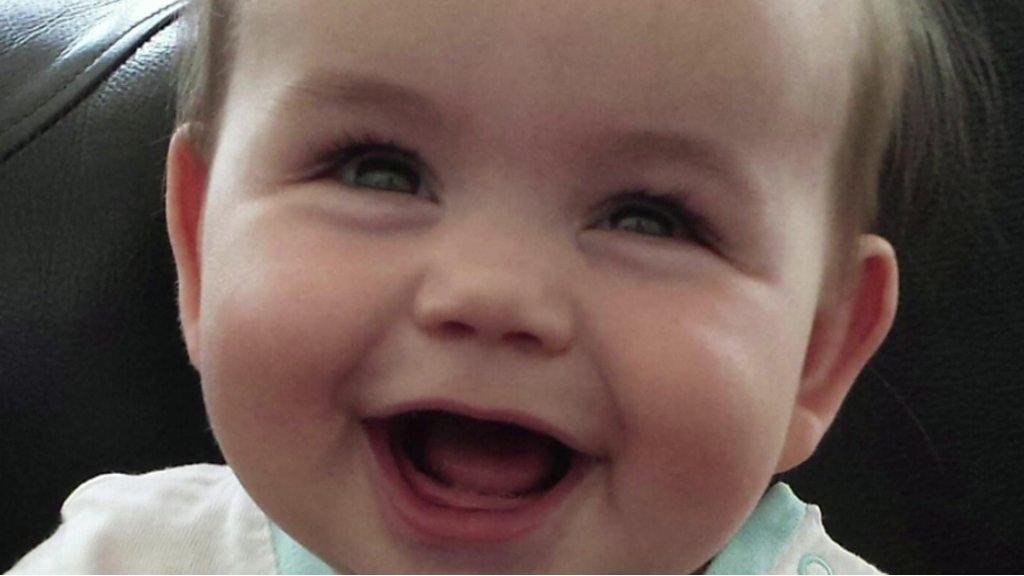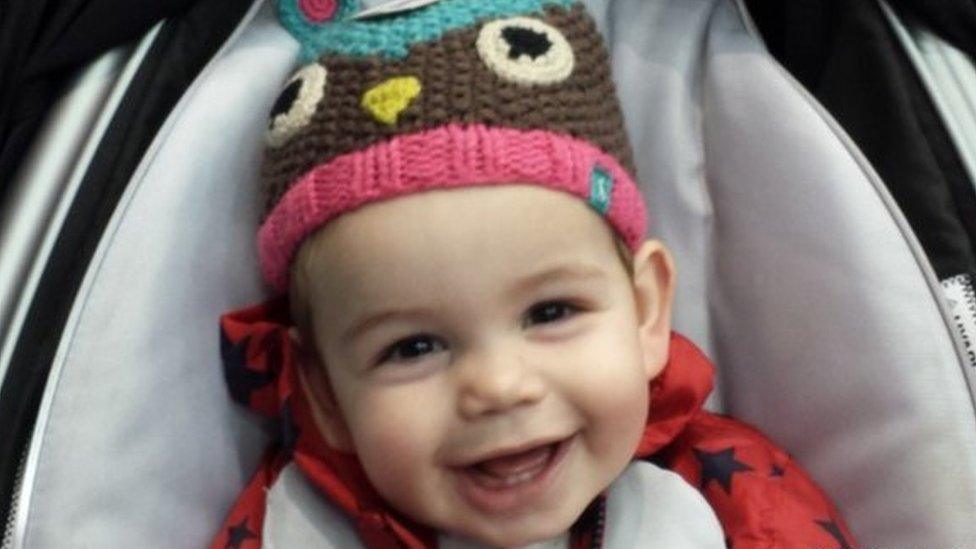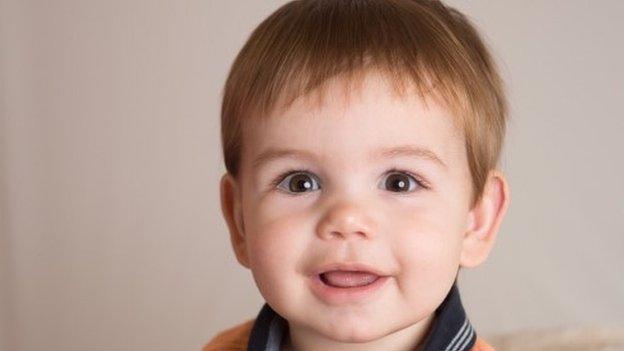William Mead: Sepsis death baby's mother welcomes campaign
- Published

Baby William Mead is one of about 44,000 people who die from sepsis every year in the UK
A mother whose 12-month-old baby died from sepsis has welcomed government support for an awareness campaign about the potentially fatal condition.
William Mead from Cornwall contracted blood poisoning in 2014 and died after a series of NHS failures to detect it.
Following a Whitehall meeting between Melissa Mead and the UK Sepsis Trust, Health Secretary Jeremy Hunt has agreed to lead the campaign.
About 44,000 people in the UK die from sepsis each year.
The campaign will include a 90-second social media video aimed at both doctors and the public which will appear at hospital emergency departments, walk-in centres and doctor's surgeries on World Sepsis Day on 13 September.
Updated guidelines
"It is really, really important that this is a campaign which continues to roll and have a journey and an evolution," Mrs Mead said after the Whitehall meeting.
"Personally, I feel relieved because I'm here because William died but, equally, I'm stood here and we represent 44,000 people who die every year and 150,000 people who suffer with sepsis.
"This isn't a one-off story, it effects so many people's lives and it's very important."
Sepsis, also known as septicaemia or blood poisoning, is a life-threatening condition that occurs when the body's immune system goes into overdrive as it tries to fight an infection.
Without prompt treatment with antibiotics, sepsis can lead to multiple organ failure and death.

William Mead, from Cornwall, was just 12 months old when he died in December 2014 after health professionals failed to recognise he had sepsis
In January, the health secretary apologised for William's death after a report criticised GPs, out-of-hours services and a 111 call handler who failed to spot he had sepsis caused by an underlying chest infection and pneumonia.
Earlier this month, the National Institute for Health and Care Excellence updated its guidelines so that sepsis is treated by doctors and nurses as an emergency on the same level as heart attacks.
That, plus the government approval for the Think Sepsis and Ask Sepsis campaign, should now mean there should be "joined action", Mrs Mead said.
The campaign will be aimed at recognising warning signs in both adults and children and the Department of Health has agreed to run it independently of a similar campaign to raise awareness of meningitis.
Campaigners had fought to separate the conditions into two campaigns so as not to present the public with a confused message.
- Published14 July 2016

- Published13 July 2016

- Published16 June 2016

- Published20 February 2016

- Published26 January 2016

- Published26 January 2016

- Published10 June 2015
